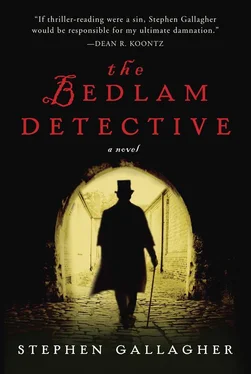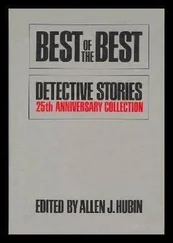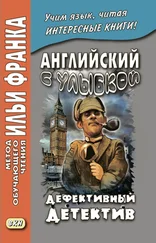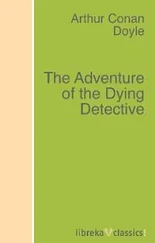Stephen Gallagher - The Bedlam Detective
Здесь есть возможность читать онлайн «Stephen Gallagher - The Bedlam Detective» весь текст электронной книги совершенно бесплатно (целиком полную версию без сокращений). В некоторых случаях можно слушать аудио, скачать через торрент в формате fb2 и присутствует краткое содержание. Жанр: Исторический детектив, на английском языке. Описание произведения, (предисловие) а так же отзывы посетителей доступны на портале библиотеки ЛибКат.
- Название:The Bedlam Detective
- Автор:
- Жанр:
- Год:неизвестен
- ISBN:нет данных
- Рейтинг книги:5 / 5. Голосов: 1
-
Избранное:Добавить в избранное
- Отзывы:
-
Ваша оценка:
- 100
- 1
- 2
- 3
- 4
- 5
The Bedlam Detective: краткое содержание, описание и аннотация
Предлагаем к чтению аннотацию, описание, краткое содержание или предисловие (зависит от того, что написал сам автор книги «The Bedlam Detective»). Если вы не нашли необходимую информацию о книге — напишите в комментариях, мы постараемся отыскать её.
The Bedlam Detective — читать онлайн бесплатно полную книгу (весь текст) целиком
Ниже представлен текст книги, разбитый по страницам. Система сохранения места последней прочитанной страницы, позволяет с удобством читать онлайн бесплатно книгу «The Bedlam Detective», без необходимости каждый раз заново искать на чём Вы остановились. Поставьте закладку, и сможете в любой момент перейти на страницу, на которой закончили чтение.
Интервал:
Закладка:
It was a rough ride down the last of the track, and for the final hundred yards Evangeline had to dismount and walk the bicycle. There ahead of her was the old familiar cottage, with the paddocks and the great wide bay beyond. It had been dilapidated then, and it was dilapidated now. Any more dilapidated, and it would be derelict.
“Grace?” she called from the gateway, but there was no reply.
She left her bicycle leaning against one of the outbuildings. The front wall of the wooden stable was a rusty maze of bolts and hinges and iron catches. She walked around it and found Grace in the paddock behind the house, tending to one of her horses.
She hadn’t heard Evangeline coming. Evangeline called out, “Are you well, Grace Eccles?” and Grace quickly looked toward her.
There was a moment in which Evangeline was uncertain of the reception she’d get. But it was quickly over.
“Better than some,” Grace replied, turning to face Evangeline as she crossed the paddock. Grace looked as dark and as wild as ever. “What are you doing here?”
“Just a brief visit to see some old faces.”
“And rattle some old bones?”
Instead of replying, Evangeline looked at the animal in the halter that Grace was holding. She’d been stroking its head and speaking soothing things into its ear. There was something odd in the way he held his head to listen, but Evangeline couldn’t have said why.
“What’s wrong with him?” she said.
“He kicked up and threw his owner. So his owner pulled his head around and had an eye out with his thumb. Who could do that to an animal?”
“That’s appalling. Though I could imagine wanting to do it to some people.”
Grace removed the halter. The horse didn’t move until she gave him a push, and then he trotted off.
Evangeline said, “I don’t know how you can keep a farm going on your own.”
Grace shrugged, as if there were no choice involved. She said, “I can’t sew and I can’t sing. And they don’t welcome riffraff like me in the kind of places you go.”
It was said without resentment. They started to walk back toward the house.
Grace’s father had bred horses. Grace herself did not. It was 1912, and the market for working animals was beginning to disappear. Tractors and buses and trucks were replacing more of them every year. With no capital to speak of, Grace scraped her living by taking in distressed city horses, nursing them back to health, and selling them on.
Evangeline looked out toward the estuary. The half-blinded horse had joined four others grazing down there, right up against the fence. With the sun going down, this felt like the sweetest, most isolated spot on Earth.
She said, “Does anyone ever come out here?”
“An earful usually sends them away. They don’t expect it from a woman.”
Grace had never been at a loss for a riposte. Evangeline could remember their school and the teacher who’d once said, when Grace had been scowling about something, “Now, Grace, what’s that face for?” And Grace had replied, “It keeps all the meat from falling off my head, Miss.” The entire class had laughed, and Grace had been sent to stand alone out in the yard for all of a cold March morning. Evangeline was the only one who could see her through the window, and the teacher would ask her every few minutes for a report.
“Just standing there, Miss,” she would say.
And indeed, Grace had just stood there; unbeaten, unbowed, until finally she was recalled. Whereupon she returned to her desk without any sign of self-pity or contrition.
They walked back up to the buildings. After she’d hung the animal’s halter up on a peg outside the stables, Grace said, “Come inside. We can have a glass of water.”
So then they moved from the stables toward the house.
Grace went on, “I know the real reason why you came back.”
“Do you?”
“Yes, I do. Can’t you let it go? You’d do better to.”
“You’re sounding like my mother.”
“Your mother’s ashamed for you. Doesn’t want people to think you’ve been tainted. She thinks you should feel the same way.”
“Do you? ”
“I used to.”
“Don’t you think about it?”
“I’ve been through worse since,” Grace Eccles said, and they went inside.
Evangeline understood what Grace surely meant. Grace had nursed her father through his final months, right here in this house. They couldn’t afford doctors, and there was little that a doctor could have done; it was the drink that had killed him, and his final weeks had been a harrowing time of jaundice and delirium.
The house was mean, but Grace kept it neat. Fresh rushes on the floor, meadow flowers in a small cracked vase on the sideboard. Evangeline was surprised to notice some books, but she didn’t comment. She couldn’t recall seeing a book in the Eccles house while Grace’s father had lived.
Grace had water in a jug, kept cold on a stone. Alongside it were two fine glasses, polished.
Grace poured out two careful measures and handed a glass to Evangeline.
“Taste that,” she said. “It’s so clean.”
Politely, Evangeline drank; Grace sipped at hers, and closed her eyes to appreciate it. She kept them closed for a while, long enough for Evangeline to drink again and wonder if she was missing something.
Then Grace said, “Did anyone tell you they’re trying to get me off the land?”
“I thought Sir Owain made you a promise.”
“It’s not him. It’s that doctor who lives in his house. Tells him when to eat, tells him when to sleep, tells him when to fart and make water.”
“Grace!” Evangeline pretended to be shocked, and Grace to shrug it off. She’d always liked to play the outrageous child. Because her father was said to have been a settled gypsy they’d called Grace a diddikai , and she’d turned the insult into a badge of pride.
From her father she’d inherited his touch with horses and this cottage, and the dispute that came along with it. He hadn’t owned the land, but he’d laid out hard cash for a lease that still had thirty years to run. He’d counted the money out before witnesses and made his illiterate’s mark on a deed. When he’d died, there had been some immediate question as to whether it should revert to the estate or pass on to his heir.
Grace said, “Sir Owain was always as mad as a coot, but now he’s getting worse. A man came out from London. Went over to the Hall asking questions, trying to get him locked up. It’s supposed to be a big secret but everyone knows about it. Old Arthur told me.” She smiled with some satisfaction. “The London man came to the house. I sent him off, too.”
“What did he want with you?”
“Didn’t give him a chance to say.” They pulled out chairs to sit at the cottage’s plain board table. It was heaped with brasses and bridles and a mass of other tack that Grace was attempting to clean up or repair. She had to clear a space for them to put the glassware down.
She went on, “That doctor friend of his keeps saying that my piece of paper means nothing now Father’s gone. Says the estate has to be run properly or Sir Owain will lose it. He wants me paying rent or he wants me out. Well, he can want. There’s worse than him to watch out for.”
“Like who?”
“If anything ever happens to me, I daresay you’ll know where to look to find out.”
Evangeline looked at her. Lost, unhappy Grace. With her wind-scrubbed skin and her dirty fingernails. Evangeline felt a lurching reminder of the sisterly love she’d once had for her. Motherless Grace and fatherless Evangeline. At one time it had been as if they could read each other’s thoughts. But now Evangeline looked and found the book closed, its pages blank, its text encrypted and hidden from her view.
Читать дальшеИнтервал:
Закладка:
Похожие книги на «The Bedlam Detective»
Представляем Вашему вниманию похожие книги на «The Bedlam Detective» списком для выбора. Мы отобрали схожую по названию и смыслу литературу в надежде предоставить читателям больше вариантов отыскать новые, интересные, ещё непрочитанные произведения.
Обсуждение, отзывы о книге «The Bedlam Detective» и просто собственные мнения читателей. Оставьте ваши комментарии, напишите, что Вы думаете о произведении, его смысле или главных героях. Укажите что конкретно понравилось, а что нет, и почему Вы так считаете.












